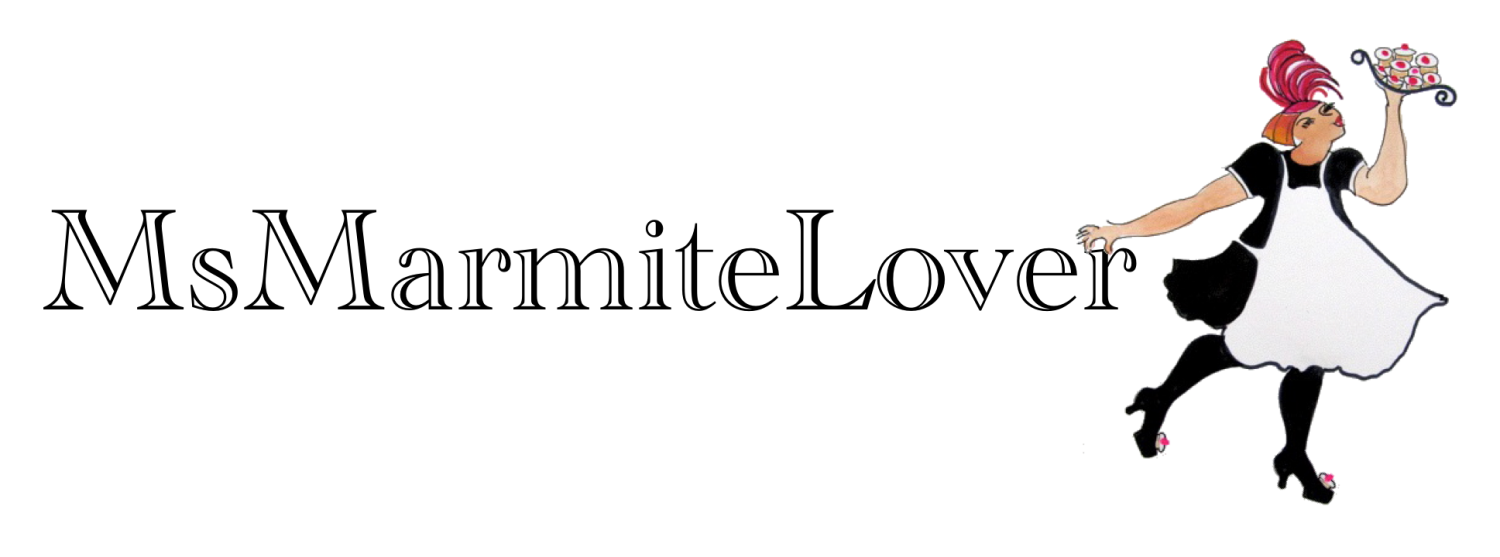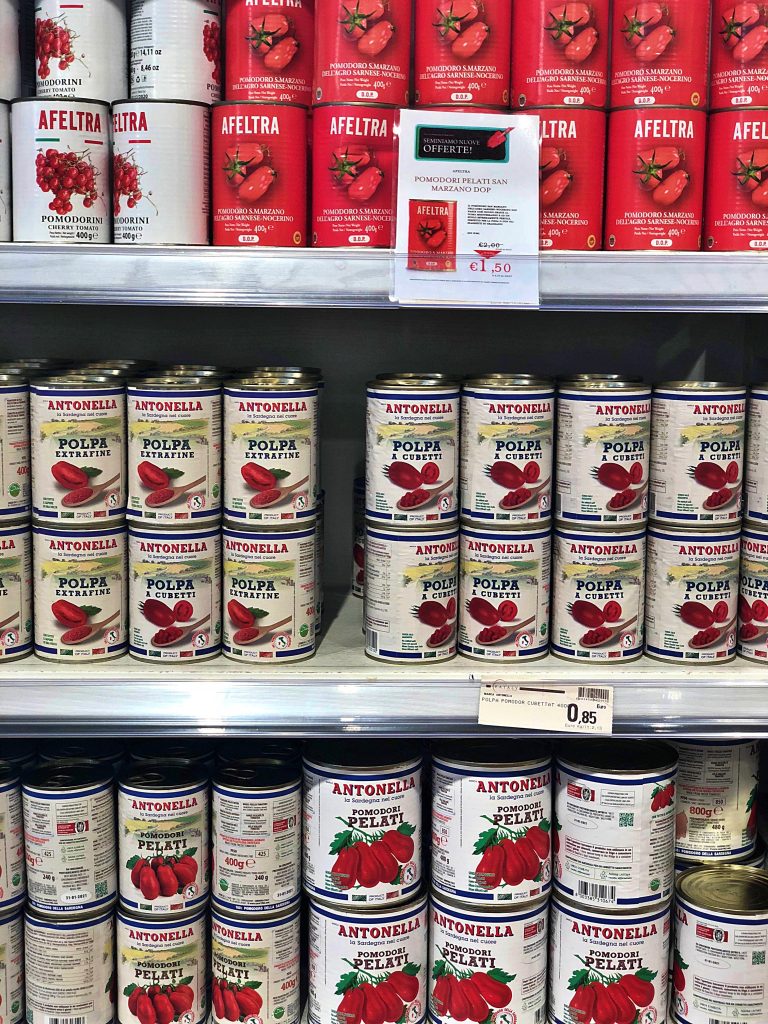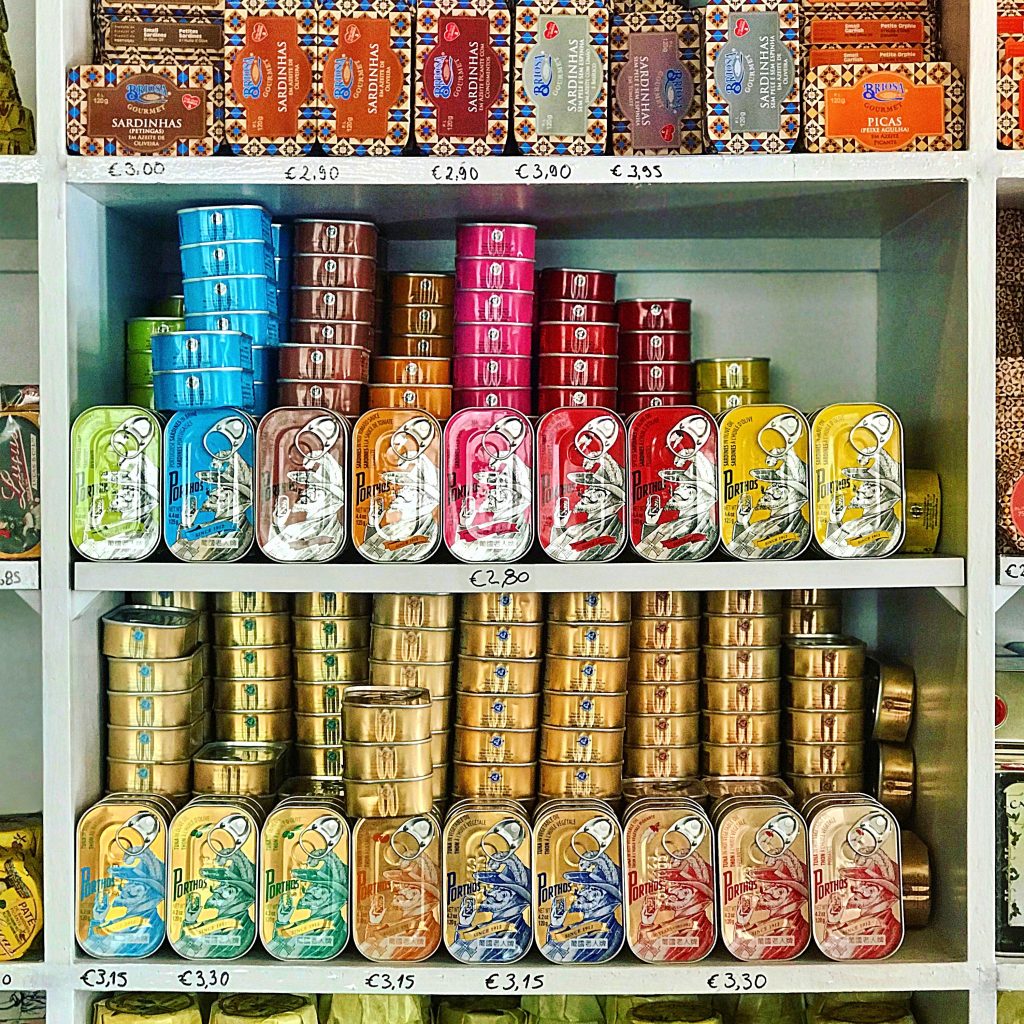Dr Bryce Evans is an Associate Professor in History at Liverpool Hope University who specialises in food history.
Hi! My name’s Bryce Evans – or ‘Traitor’, ‘Scum’, ‘Scaremonger’ or (my favourite) ‘Professor Dickhead’.
What did I do to earn these prestigious titles, I hear you ask? Well, it was my misfortune to have been misquoted in The Daily Mail recently about the possibility of a return to wartime-style food rationing in Britain as a result of the coronavirus crisis.
It’s that word that’s the problem: rationing. As my email inbox will attest, it elicits knee-jerk responses in people. Why? I can only presume because it conjures up images of Soviet food queues; authoritarian North Korea; or thoughts of Dad’s Army. In short, it is the antithesis to the abundant and unfettered consumption we have all grown accustomed to.
To be clear, although coronavirus has sent shockwaves through the global marketplace, this is not yet a food supply crisis comparable to the Second World War. Ships loaded with supplies are not being sunk by U-boats, as many devotees of The Daily Mail have helpfully reminded me.
But the crisis has exposed inherent weaknesses in our food system. The food bank system has creaked under the pressure and several food banks have collapsed. Panic buying has broken out at supermarkets, resulting in goods such as pasta and toilet roll disappearing from the shelves as consumers stockpile. Inevitably, there’s been a lot of profiteering. Meanwhile, the efficiencies of our ‘just in time’ food supply system have simultaneously been exposed as precarious.
In response to these problems, and without wishing to catapult anyone back to the Blackout, I suggested that we could learn the following four key lessons from the war around food:
1: Rationing
Although people don’t like the term, the panic buying of this crisis has ensured we are already seeing the return of rationing. In supermarkets, certain items are restricted to one or two per person. Meanwhile, vouchers are to be exchanged at supermarkets by parents of kids who usually rely on free school meals.
The problem with this is that, firstly, people are still going to supermarkets en masse, worsening the transmission of the disease. Slots reserved for the elderly – while well intentioned – witness vulnerable people congregating together all in one place at the same time.
Worse, supermarket staff now find themselves on the frontline. Having to police and administer an ad hoc system of rationing, they are being exposed to violence and abuse as well as being in daily close contact with all number of infected people.
The government’s response? Shop online. But there are precious few slots online and there are weeks’ delays.
The wars show us that the government has to step in to help the retail trade and to work with them to ensure a system of fair shares for all. In particular, with the government urging people to stay away from supermarkets as much as possible, why can the government not work alongside the major supermarkets and online retailers to institute a form of online rationing – not for all goods, but for certain goods. These days there are sophisticated ways of tracking and managing supply and demand of goods – why, then, not a coordinated and collaborative system of online rationing for certain goods on a week-by-week basis?
All rationing signifies is a way of ensuring fairer shares – it is not just that a frontline health worker finishes a shift only to find empty supermarket shelves. An efficient online order system, centrally coordinated to ration certain goods in high demand would address this.
2. Mobile feeding
This was a feature of the war. When communities were destroyed by bombing raids, food was sent out to feed people by courier.
We are effectively seeing the return of mobile feeding or ‘meals on wheels’ already via volunteers / the army delivering food to the doorsteps of the 1.5 million most vulnerable.
Why not also use the now-empty school kitchens to produce food on a national scale? Perhaps it’s time for national kitchens.
This is effectively what the food bank model is evolving into – and we’ve been here before. There are clear wartime precedents.
3. Control of the Black Market
The war shows that the government needs to take tougher measures on those who profiteer during a national emergency.
Hiking up the price of scarce essential goods to unreasonable levels is unacceptable.
Quite simply, these people are not entrepreneurs, they are spivs.
4. Land Army
A big shift is underway in terms of what people are buying – beans, legumes, for example, undergoing great demand.
Meanwhile, it is likely that we will see a drop-off in air-freighted foodstuffs like avocados. (This will undoubtedly come as devastating news to a certain ‘type’ of person which sections of the tabloid media like to dismiss as the avocado-on-toast brigade).
To cope with potential shortfalls in labour and a shift towards greater production of legumes, fruit and veg in Britain, as well as mounting unemployment, why don’t we institute a government-led scheme reminiscent of that seen during the war to get people working the land? More of our available hectares need to be turned over to fruit, veg, and legumes.
Conclusions
As Corporal Jones of Dad’s Army would urge “Don’t Panic! Don’t Panic!” Panic buying and hoarding food is a selfish activity, as ministers have insisted.
At the same time, the government can’t very well tell people we are in the biggest crisis since the war and then expect people not to stock their larders accordingly. What is needed is government action and oversight – as this crisis is showing, you can’t leave everything up to the market.
The overriding point is that we must all shift our consumption habits to adapt to this emergency, but that we need the government – perhaps in the form of a new Ministry of Food headed by retailers and promoted by celebs – to help manage this transition. It should not be drab and statist, it should be informed by history, yet also creative.
It’s not just me that has mooted the possibility of rationing – it’s a number of experts on food policy, some of whom have called for a national scheme of vouchers that can be redeemed for fruit and vegetables.
The coronavirus may be the long-overdue moment that we address the waste and inequality in our food system – and the war provides a decent blueprint, in some respects, for how to do that.
Follow Bryce on Twitter @drbryceevans
His blog: https://drbryceevans.wordpress.com






A prescient blog. If all this goes on a long time them there will be a reduction in food from abroad. Younger people will have to help farmers the way they are helping the NHS . Well done Kerstin. Age 81 so I know what can happen.
The current problem has exposed a serious deficiency in our society. the “shortages” have only been caused by greed, selfishness and over buying. We can cope at Xmas because it is an expected demand and planned for. The corona issue was totally unexpected and therefore not planned for.Rationing, albeit on a small scale, is occurring as the supermarkets limits purchase to 2 or 3 individual items. Yes I agree we have not learned the lessons from WW2 when about 70% or the food was imported, The war ended and we did nothing about it. Worse still, we have created an environment where everyone expects everything all year round. When I was a kid we did not see tomatoes, celery,lettuce,grapes etc in winter. There has to be a fundamental change as our current system only works when there is peace or no other underlying problem like a pandemic.
Thanks for posting this, an important discussion to get us all used to the idea of what my well be coming.
Absolutely! I met Bryce at a food conference in London. At the time we discussed the whole food banks issue. Also, by the way, he’s kinda hot.
Thanks for commenting Annie.